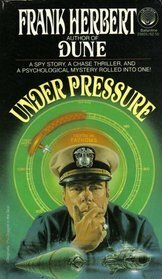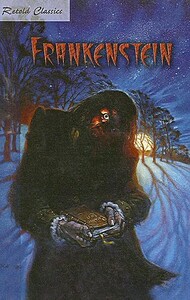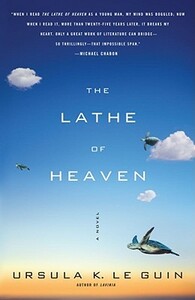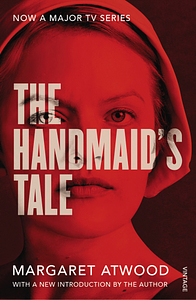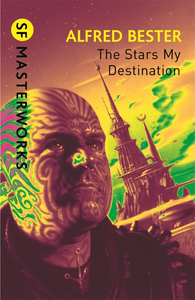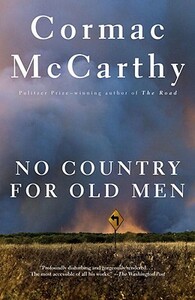Take a photo of a barcode or cover
aether's Reviews (111)
I picked this book off the store shelf because it was a Herbert and I enjoy collecting his books. I pulled it off my own bookshelf to read because it was short and it looked like something I could finish without much investment (as I am quite busy currently). In that regard I was not disappointed! Pages flew by, and before I knew it the book had ended. Herbert has such a way of obfuscating full understanding, putting it right around each next corner until you reach the end of the maze without grasping the full picture. As a Herbert, it has numerous notable quotes. One aspect I didn't expect from this novel was a love story--Herbert has it all! It reads like a short story in the sense that the universe isn't fully fleshed out, but it doesn't have to be. I enjoyed it, I'm happy that I own a copy, but I might not give it a second read.
Another great Herbert book! In this work, Herbert dives into what makes a submariner tick in the cloak-and-dagger story of a submarine team on an impossible mission into enemy territory. Herbert has an incredible talent to keep the reader just below complete understanding, fully surfacing only at the very end of the book. Definitely a page turner, this book (without any chapters) kept suspense on full the entire read. As would be expected on a submarine in wartime, every second is a new peril. Herbert still finds a way to expound on the human condition amidst the stress of the situation. And a happy ending to boot!
A bit shorter than I thought it would be, still enjoyable for its investment.
An incredibly unique and creative premise, I quite enjoyed this book. I love that the story was unpredictable - the end is certainly not discernible from the middle of the book. I feel like this book is a ties in with Shakespeare as well; Le Guin paints a picture of the folly of human hubris similar to that in MacBeth, and she even quotes Hamlet near the end. The addition of a romantic subplot supplements the tone of the book, rather than detracting from it. I wasn't expecting a happy ending, but Le Guin does a great job of wrapping things up hopefully. I would recommend this to those that enjoy sci-fi/fantasy (although it isn't really either!).
This book isn't my typical "sci-fi" read, but I started reading this due to great encouragement from my girlfriend. I have to say I was blown away - Atwood does an amazing job in developing a world with an insane view of sex and gender roles. She is able to weave together a story through a number of flashbacks, and paint a picture of the current times that is just detailed enough; she leaves much of the society to questions and uncertainty. Near the end of the book she pulls away the veneer from this "utopia", and shows the inevitable result of abstinence. A thrilling and intellectually challenging read, would definitely recommend!
This is my top book of 2016! I pulled this book off the shelf because it looked interesting and the vintage cover art made me curious. The back of the book summary describes a man who was trapped between two warring halves of the solar system on a quest to wreak revenge; what it doesn't tell you is that the first chapter is an explanation of how a man discovered localized, mind-induced teleportation, and how this is a crucial part of the story.
I had two different, random people come up to me while I was reading this book and tell me that it is an amazing work of fiction - neither of them were wrong. What I truly enjoy about this book is its dynamic nature. No character is static throughout the tale, every person changes in some trait or another. No motives are truly clear from the beginning, every small happenstance effects the course of the book.
More importantly, this book was written 50 years ago but was so innovative for its time. The technology and society that are created by Bester were the product of a wonderful imagination.I realized that the movie Interstellar actually draws from this work! The "going back in time to save yourself/send messages to yourself" is employed by Bester first, and I cant help but think that Christopher Nolan used this book as an inspiration
This book is wild, unpredictable, and thrilling. Through the last quarter of the book, I couldn't set it down. I would recommend this to all those who enjoy science fiction, and even to those who simply like a gripping book.
I had two different, random people come up to me while I was reading this book and tell me that it is an amazing work of fiction - neither of them were wrong. What I truly enjoy about this book is its dynamic nature. No character is static throughout the tale, every person changes in some trait or another. No motives are truly clear from the beginning, every small happenstance effects the course of the book.
More importantly, this book was written 50 years ago but was so innovative for its time. The technology and society that are created by Bester were the product of a wonderful imagination.
This book is wild, unpredictable, and thrilling. Through the last quarter of the book, I couldn't set it down. I would recommend this to all those who enjoy science fiction, and even to those who simply like a gripping book.
Gully Foyle is my name,
And Terra my great nation,
Deep space is my dwelling place,
The stars my destination!
This book took me too long to read, so I wan't able to wrap it together mentally. That said, Chesterton does a far better job of making comparisons and metaphors than any other author I've seen. He's able to lasso huge schools of thought into tiny packaged boxes that are easy to comprehend. With that comes a disregard for some of the finer nuances, but I found his perspective challenging and refreshing.
This book is certainly a product of an older (more sexist) era. While the premise and underlying message was interesting, I felt like this would have done better as a short story than as a full novel. I didn't feel enraptured by any of the characters (none of which had much depth), or any motives. The main character tackles these incredible feats of combat which would be impressive for any normal person - this is contradicted by the fact that he was agoraphobic and had no physical/combat training whatsoever! The ending was unexpected, but by that point I was just ready to finish the book.
This was an exciting read for the first 3/4ths of the book. Cormac's writing style is disruptive and discombobulating, but it provides an excellent vessel for describing gruesome stories. While The Road was a discourse on humanity in general, this book seemed much more focused on the future of American society. Cormac's outlook is unoptimistic, and his exposition on "the state of society today" is expertly partnered with horribly inhumane acts of injustice and violence. Be wary of the hope that Cormac plants - in his literature, it's almost always for naught.

